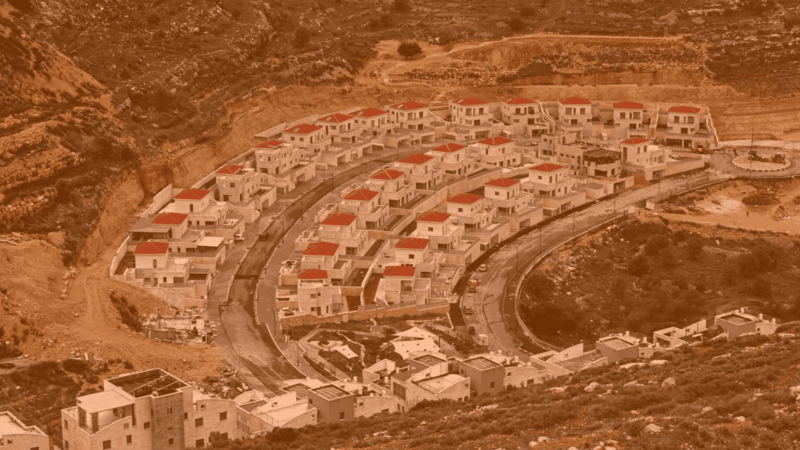One of the reasons for the failure of the mainstream Left in recent years has been its consistent inability to build a new common-sense.
One of the fundamental principles of any Green New Deal has to be how to build a new common-sense of thought and action around the ecological crisis.
It must, for example, re-frame the debate over air-travel/rail by working towards making less air-travel the norm; it must engage in a critical dialogue with the carefree way it is thought today. This is an essential question for any serious consideration of a post-capitalist economy, and one that the GNDE is tackling. As a People’s Green New Deal, it relies entirely on mobilising forces to act and think in a new way so as to fundamentally overturn how we think about capitalism and the ecological crisis.
A frame of thought (or common-sense) is fundamental. They structure our lives and the way we engage with the world. But they are not naturally occurring. Every frame of thought acts as a refraction or distillation of a particular dominant world view. This can be a profoundly positive occurrence. If the dominant world view is one of justice, equality, equity, fairness, then thought and action within such a world view will reflect that. Today the dominant common-sense is capitalist. As Frederic Jameson says, right now ‘it is easier to imagine the end of the world than the end of capitalism.’
Yet today, the dominance of the capitalist common-sense is permeated with the possibility of constructing a new one. This is exemplified by air-travel. Commercial air-travel has reduced drastically throughout 2020 out of necessity, and this has provided an opportunity to finally seriously engage in a dialogue about the aviation industry, its devastating effect on the environment, and about the need to fly or travel as much. Air-travel’s ubiquity and naturalisation is, as a result of COVID-19, under much needed critique.
To build on this critique the Left must construct a new frame of thought and action that views the ecological crisis not as something that can be fixed by capitalism, but that understands and articulates that capitalism is fundamentally at issue. One that does not place the blame on an individual’s shoulders in the usual, neoliberal manner, but that recognises the necessity of structural change and where the real blame lies.
This common-sense must be an environment in which the destruction of our environment becomes unthinkable. As Felix Guattari argues, what is needed is a “collective and individual subjectivity that completely exceeds the limits of individualization, stagnation, identificatory closure, and will instead open itself up on all sides to the socius.”
The Left must work to alter the current common-sense around the ecological crisis which views it fundamentally as a ‘market failure’.
Something that with the right investment and the right technologies can be solved, as if the capitalist free-market were not fundamentally the problem.
This has a very real impact on how the world deals with and comprehends the ecological crisis, because the ecological crisis is, as many have argued, a crisis of imagination. It is also a crisis of unfathomable size and devastation for reality. But the two are linked. To separate them is a mistake we can no longer keep making. In other words, ‘The point is not to attain any special state of mind at all. The point is to go against the grain of dominant, normative ideas about nature, but to do so in the name of sentient beings suffering under catastrophic environmental conditions.’
Take the fact that 1% of the world’s population caused half of the aviation industry’s carbon emissions in 2018.
This extraordinary figure is not the result of some inherent malice in frequent fliers. It is a dual consequence of any lack of regulation on the aviation industry and a common-sense which is fundamentally unable to see the aftermath of many of its actions.
A globalised world is an accessible one, and an accessible one is made to be accessed, right? If it were immoral, why would it be possible?
These are natural responses to the argument against air-travel, and against much of what needs to be changed in order to mitigate the crisis we are already in. But this response is simply the distillation of the dominant worldview that has for too long successfully made invisible all of the consequences of our actions and that has again and again told us that there is nothing wrong with what you are doing. This obviously is a justification, and nothing more.
The GNDE’s policy recommendation to invest in high-speed rail and phase out ‘aeroplane flights with comparable times to rail alternatives’ is highly commendable but must also be met with an attempt to re-frame the debate over air-travel/rail.
To begin, alternatives must be thought up, they must be communicated, and in that process the naturalisation of the status quo is questioned. Once it has been questioned, it must not be allowed to go back to being unquestioned. It is no longer viable to say: ‘this cannot be done’, or ‘that is too much to ask’. This only an expression of a common-sense of inaction and disregard, and in repeating it this frame of thought is only cemented more.
All of this is possible and happening now, but it must be sustained. It is a momentous task, but one that cannot be ignored.
DiEM25 has wholeheartedly taken this task upon itself. The GNDE, as well as being a thorough alternative to the current capitalist response to the ecological crisis, offers the potential for building a new common-sense around how we live and interact with our world.
As a result, it offers a route for the Left too often forgotten; how to begin building a politics of emancipation that captures the imagination of the people.
Photo by SevenStorm JUHASZIMRUS from Pexels.
Do you want to be informed of DiEM25's actions? Sign up here















